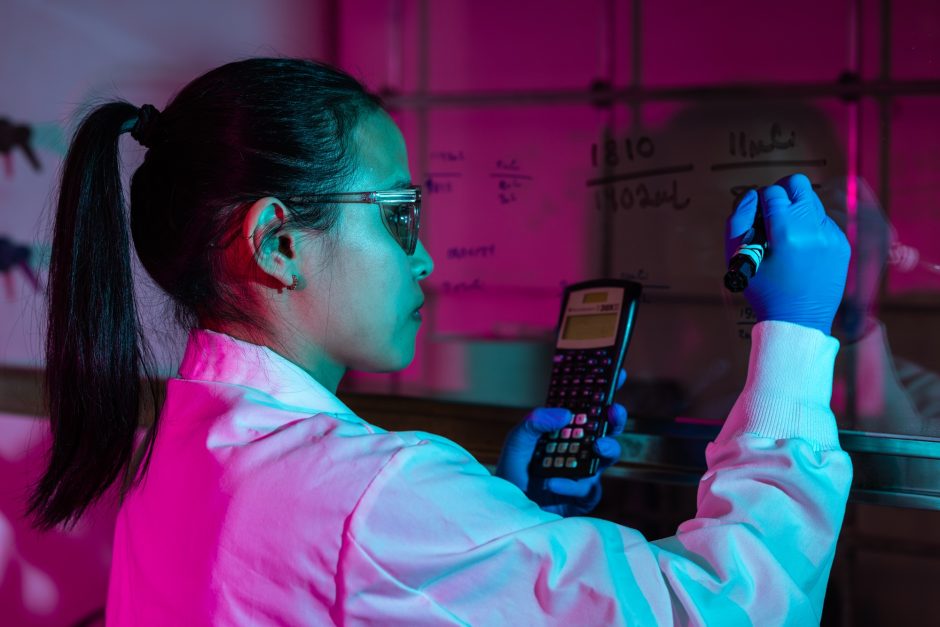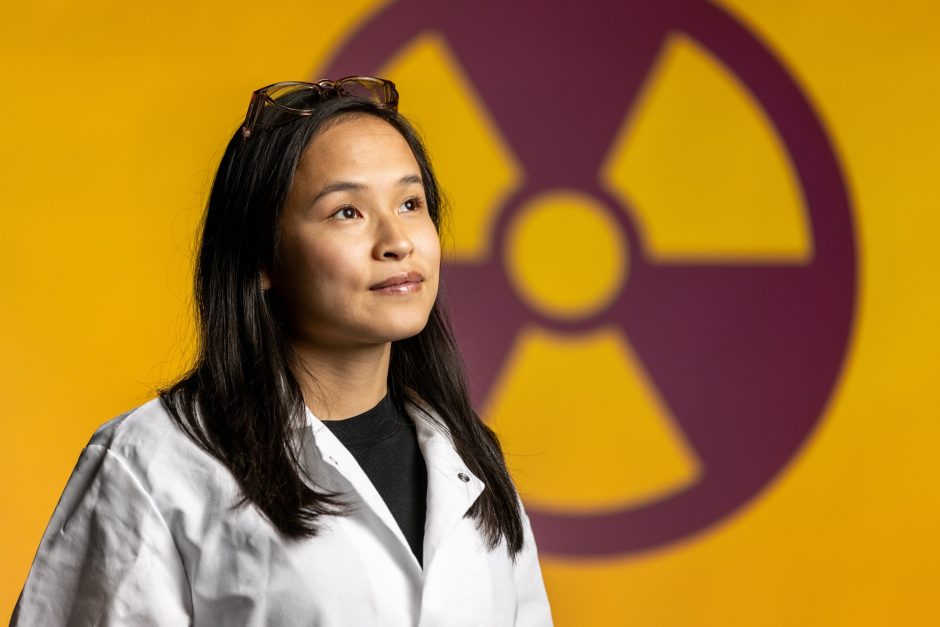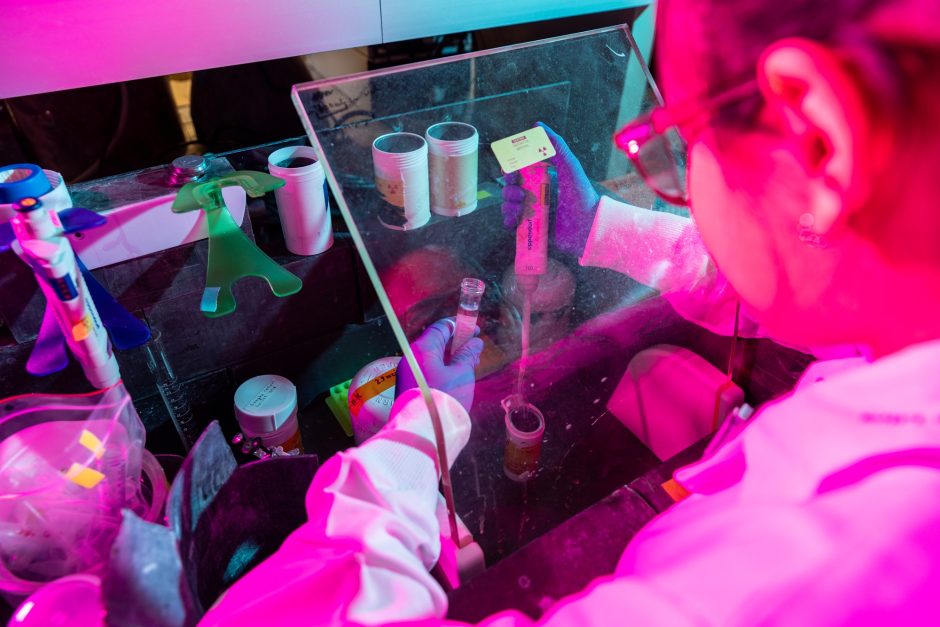By Eric Stann

May 7, 2024
Contact: Eric Stann, 573-882-3346, StannE@missouri.edu
Photos by Abbie Lankitus
After joining her high school’s Science Olympiad club in the Kansas City suburb of Plattsburg, Missouri, Grace Liles discovered her passion for chemistry.
“I thought it was cool that you could mix two liquids and make a gel or a solid,” said Liles, who is now a senior at the University of Missouri majoring in chemistry. “I also loved the idea I could make an impact on the world by helping people through my work.”
After Liles enrolled at Mizzou, she joined the chemistry fraternity Alpha Chi Sigma. Being around other chemistry majors with similar interests helped her learn more about her major and the field, including radiochemistry.

Radiochemistry is the branch of chemistry that deals with radioactive isotopes — a building block in the creation of radiopharmaceuticals such as Lutathera®, which targets pancreatic cancer tumors. Mizzou is home to the University of Missouri Research Reactor (MURR), the world’s most important university research reactor for fighting cancer – making MU the perfect place for Liles to conduct leading-edge research in the radiochemistry field.
“I was able to take an introduction to radiochemistry course taught by Dr. Heather Hennkens, and it included hands-on learning in the lab — something I didn’t have the opportunity to experience during high school,” Liles said. “Before coming to Mizzou, I thought chemistry was just chemistry. But now after being here, I’ve discovered there are many different routes you can take within the field.”
Liles credits Claudia Chambers, former president of Alpha Chi Sigma, with introducing her to two renowned radiopharmaceutical researchers at Mizzou: Carolyn Anderson and Jeff Smith. Liles joined both of their labs during her sophomore year.

“It’s been a pleasure and honor to have Grace at MU’s Molecular Imaging and Theranostics Center and be one of her mentors for the past few years,” said Anderson, director of Molecular Imaging and Theranostics Center (MITC) and the Simón-Ellebracht Professor in Medicinal Chemistry. “Watching her grow as a young scientist has been a rewarding experience. I’m confident she’ll be making significant contributions to the theranostics field.”
During her time at Mizzou and in MITC, Liles worked on projects involving prostate cancer and metastatic melanoma. After graduating in May, Liles will further her studies in radiochemistry in graduate school.
“Mizzou has a wonderful radiochemistry program,” Liles said. “We’re on the cutting edge of new ideas being discovered every day in this field. Between my classes and hands-on research, the university has taught me everything I know to help save and improve lives of people through the diagnosis and treatment of diseases.”
The university’s efforts in recruiting and training undergraduate researchers have significantly influenced the fields of molecular imaging and theranostics, Anderson said.


“Several undergrads who have done research at MITC are staying in this field, which desperately needs trained scientists,” Anderson said. “I want to give a shoutout to the Office of Undergraduate Research, which has promoted research to undergraduates who previously had not considered this as a career option. Their efforts have greatly benefitted MITC and countless other labs across MU.”
As an undergraduate researcher Liles has presented her research, including recently at the American Chemical Society Conference in San Francisco. She encourages her fellow students to get involved with the research opportunities that are available at Mizzou even if they don’t have experience.
“Mizzou offers research opportunities for people at all different skill levels — I started with no experience,” Liles said. “One way to get started is by contacting graduate students or other people in your classes. Also, there are many organizations on campus that can be geared to your interests, and they might have information. Another way is to reach out to your advisor — they often have access to many different options for you to explore.”
Liles cherishes the relationships she’s made within the lab.
“In research, there are always ups and downs,” Liles said. “And when there are challenges, it’s nice to have graduate students, faculty and staff working in the lab to help guide you, troubleshoot and overcome those barriers to discovery. Everyone at Mizzou is so kind and helpful, and they want to see you succeed.”



